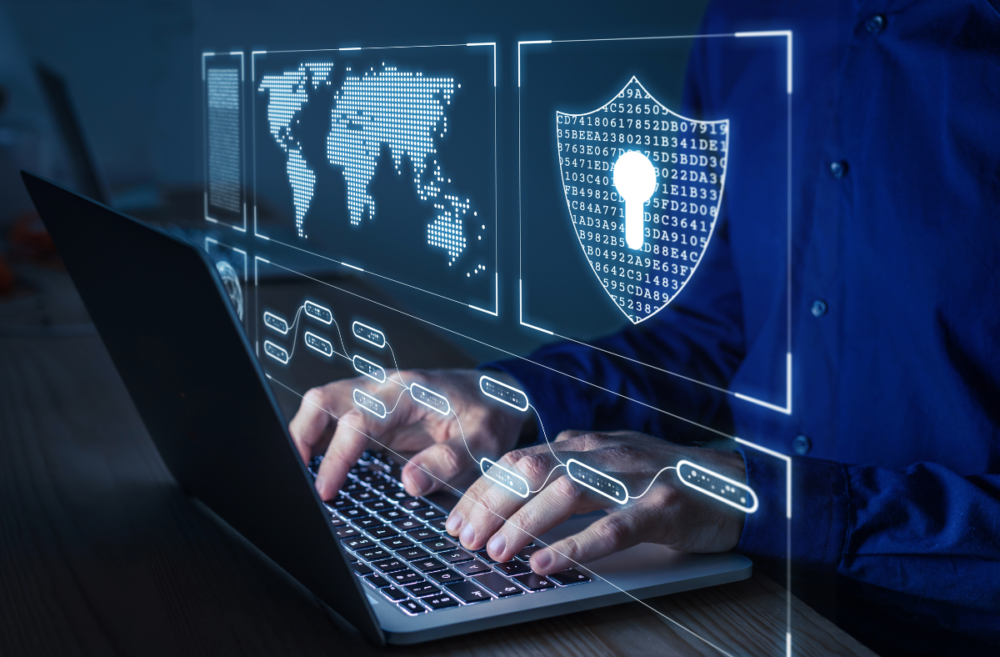Keeping your computer and personal information safe

Written by Charlotte Robbins, Guest Author
The digital world of the internet is beneficial to living and enjoying life in the modern day. It has made life so much easier. It is as easy as a button on your phone or your computer. Just like the ancient Chinese yin and yang, in every good thing, there is a bad that exists within. There are downsides to having technology, such as cyber-attacks. A cyber-attack is a vicious and intentional action taken by an individual or group to gain access to the data of another individual or group. The attacker typically seeks to gain something by disrupting the victim’s network. Cyber-attacks happen for different reasons; sometimes it’s for ransom, and other times it is for an ulterior motive; for example, some attackers use system and data destruction as a kind of “hacktivism.” Cyber-attacks take different forms, such as malware, DNS tunnelling, man-in-the-middle attack, phishing, SQL injection, Zero-day exploit and a denial-of-service attack. In reality, some people have been hacked in the past, and people who don’t know have been hacked.
The most common form of cyber-attack is malware. Malware is a type of harmful software that is created to infect a system and steal its data. These programs have various capabilities, including stealing or erasing private information, changing a system’s fundamental operations, and covertly monitoring the victim’s activity. Several circumstances might cause malware installation on your system. Running a non-updated, outdated, or older version of an operating system makes one open to assaults. Downloading harmful programs might also result from installing false or pirated software or clicking on unsafe sites.
People downplay cyber security breaches’ dangers because they do not cause physical damage like bears or adverse climatic conditions (hurricanes or drought) do. But the nitty-gritty of the matter is that cyber-attacks are an imminent danger to our daily lives. Hackers may use our personal information or data in several ways, as already mentioned. If a firm is hacked, they risk losing its good name and loyal clients. Who would want to conduct business with someone who couldn’t protect their credit card information, after all? Many people have heard the tale of a person who went to apply for a mortgage to buy their first home and was astonished to realize someone had previously taken out a sizable mortgage in their name after stealing their identity online. Similar incidents involving information gained through hacking and cyberattacks occur frequently.
Are laptop webcams and mobile phone cameras on mobile devices being used by hackers to spy on people? The quick response is yes. Webcams and smartphone cameras are a weak spot for hackers, giving criminals control over how they operate. We have relied on the internet for everything and even gone as far as connecting our devices to said internet. As a result, hackers can eavesdrop on users and look for personal data via a device’s camera.
Even now, viruses are still a major issue. You should worry about more than just viruses, though. Criminals seek your personal information to steal your money, including your name, bank account, and credit card details. And they’re doing it in ever-more-complicated ways, from bogus websites that seem legitimate but steal your login information to fraudulent apps with download links found online and easily shared on social media. Modern “antivirus” software accomplishes much more than only detecting, blocking, and eradicating infections. Picking a security suite that works on your phone, tablet, and laptop is a smart idea because the best should safeguard you and your data regardless of your device. Many packages now include a VPN service to give you more protection and privacy as you browse the web and to alert you if malware is attempting to access your device’s camera and microphone. Additionally, they feature password managers that keep track of all your logins so that you may use unique passwords for each account.
Avira is a free security technology trusted by millions and by fortune 500 companies to protect their data from malicious individuals online. Avira gives you; identity protection that secures your password; what’s more, you don’t even have to remember them, antivirus protection that blocks malware, free antivirus programs and a free VPN service that makes you anonymous online. In addition, they provide a speed booster that improves your device performance, a firewall that keeps hackers away, anti-scam protection that protects you from phishing, a firewall that keeps hackers away, regular software updates and a pc cleaner that prevents being tracked—all that at no cost. However, a premium option gives you more options like alerts for real-time breaches and maximized gaming performance.





